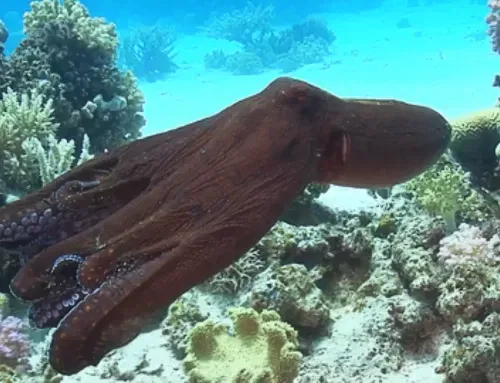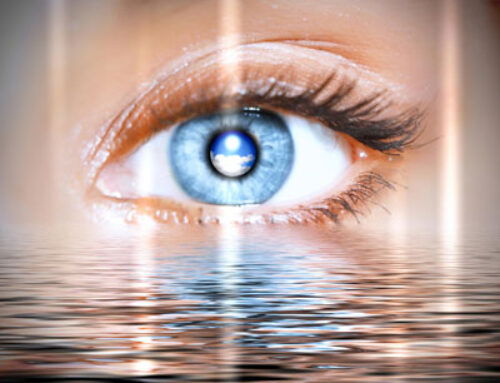 After closing my laboratory in 2009 after fifty years of research on gene expression and evolution of the eye, I turned my attention to writing and finishing my novel, Jellyfish Have Eyes (IPBooks, 2014). I had taken workshops in fiction at The Writer’s Center in Bethesda, written short stories and started the novel more than ten years before I left research to become an emeritus scientist at the National Eye Institute. I was often asked how I could write concurrently scientific research articles and fiction, since these two areas were so different. “I don’t know,” I said. “I just start writing after a day in the laboratory or on a weekend.”
After closing my laboratory in 2009 after fifty years of research on gene expression and evolution of the eye, I turned my attention to writing and finishing my novel, Jellyfish Have Eyes (IPBooks, 2014). I had taken workshops in fiction at The Writer’s Center in Bethesda, written short stories and started the novel more than ten years before I left research to become an emeritus scientist at the National Eye Institute. I was often asked how I could write concurrently scientific research articles and fiction, since these two areas were so different. “I don’t know,” I said. “I just start writing after a day in the laboratory or on a weekend.”
For fiction I expanded an image or a fuzzy idea as I wrote. Sometimes (often) the story didn’t work and so I dropped it; other times I whittled whatever thoughts I had into an imaginary world that I could enter and explore.
I found the process of research and writing surprisingly similar, at least for me. The crux was that both research findings and fiction needed stories to be comprehensible and driven forward. Since “stories” connotes fiction, which is not acceptable as science, I called them narratives. Science research is not collecting a barrel of diverse facts. A scientific narrative comprises an article that interprets some aspect of nature (it’s never nature itself) into a coherent, logical storyline. The data (facts) must be linked together in a logical way to achieve a kernel of truth consistent with what’s known at the time. However, a science narrative is never the final word on the subject. The narrative unfolds – twists and turns, or expands and contracts – as new data are added. As an example of the evolving narrative of science, I traced how the gene concept has changed radically in several hundred years in my book Gene Sharing and Evolution (Harvard University Press, 2007) as well as in an essay to be published in Perspectives in Biology and Medicine (Johns Hopkins University Press, in press).
Fiction, as science, is not ideas and imagination gone amok. Even when fiction borders on extreme fantasy, it must artfully link ideas into a story, or narrative, that is internally consistent and believable, as well as often leave the reader wondering what happens next. Fiction can always be extended, or modified, like a research project. Interestingly, however, one can argue that a short story or novel is a more finished product than a scientific article. An author can declare the work finished. No scientist can declare the answers to a research question final. There’s always more to learn about nature; every published scientific article remains a work in progress. Yet, it is also true that scientists strive for meaningful conclusions, while novelists dwell in ambiguity and conflicts, which are never fully resolved.
As I was writing Jellyfish Have Eyes, I was also writing personal essays, which differ from both science and fiction. Now I have linked these and other personal essays into a memoir, Piatigorsky/Rothschild: A Life in Art and Science. Stay tuned for its publication. Memoir strives for reality, as does science, and requires an engaging story, as do both science and fiction. But unlike science or fiction, memoir reaches into the heart by exposing and consequently assessing the author’s life, which inevitably wallows in uncertainty. That uncertainty was my great challenge of writing an honest memoir.
I






I very much look forward to reading this, and am awaiting an announcement of a publication date. Do keep us informed.